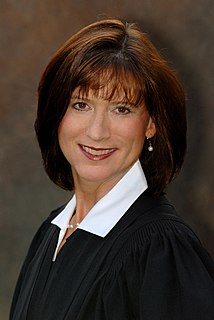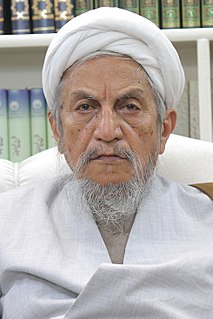A Quote by Antonin Scalia
What is a moderate interpretation of the text? Halfway between what it really means and what you'd like it to mean?
Quote Topics
Related Quotes
I'm not naive. Sometimes interpretation is more of an art than a science. There are those who would label interpretation absolutely anything a judge might do or, two, the text of a statute or the Constitution. But it seems to me there comes a point where a judge is using his own creativity and purpose and crosses the line between interpreting a text written by somebody else and in a sense creating something new.
We must be forewarned that only rarely does a text easily lend itself to the reader's curiosity... the reading of a text is a transaction between the reader and the text, which mediates the encounter between the reader and writer. It is a composition between the reader and the writer in which the reader "rewrites" the text making a determined effort not to betray the author's spirit.
Our amended Constitution is the lodestar for our aspirations. Like every text worth reading, it is not crystalline. The phrasing is broad and the limitations of its provisions are not clearly marked. Its majestic generalities and ennobling pronouncements are both luminous and obscure. This ambiguity of course calls forth interpretation, the interaction of reader and text. The encounter with the Constitutional text has been, in many senses, my life's work.
The Text is plural. Which is not simply to say that it has several meanings, but that it accomplishes the very plural of meaning: an irreducible (and not merely an acceptable) plural. The Text is not a co-existence of meanings but a passage, an overcrossing; thus it answers not to an interpretation, even a liberal one, but to an explosion, a dissemination.
I think whether you are a judge on my court or whether you are a judge on a court of appeals or any court, and lawyers too - and if you're interested in law yourself, you'll be in the same situation - you have a text that isn't clear. If the text is clear, you follow the text. If the text isn't clear, you have to work out what it means. And that requires context.
I still really love the world and the universe and the mythology of 'Halo.' If I was given control, I would really like to do that film. But that's the problem. When something pre-exists, there's this idea of my own interpretation versus 150 other people involved with the film's interpretation of the same intellectual property.
It is my interpretation from the Koran that all people have equal rights. That means men and women, Muslims and non-Muslims too. Oppression doesn't exist in Islam. And in a society where all people have equal rights, that means all people should make decisions equally... This doesn't mean that we're changing God's law, It just means we're reinterpreting laws according to the development of science - and the realities of the times.


































